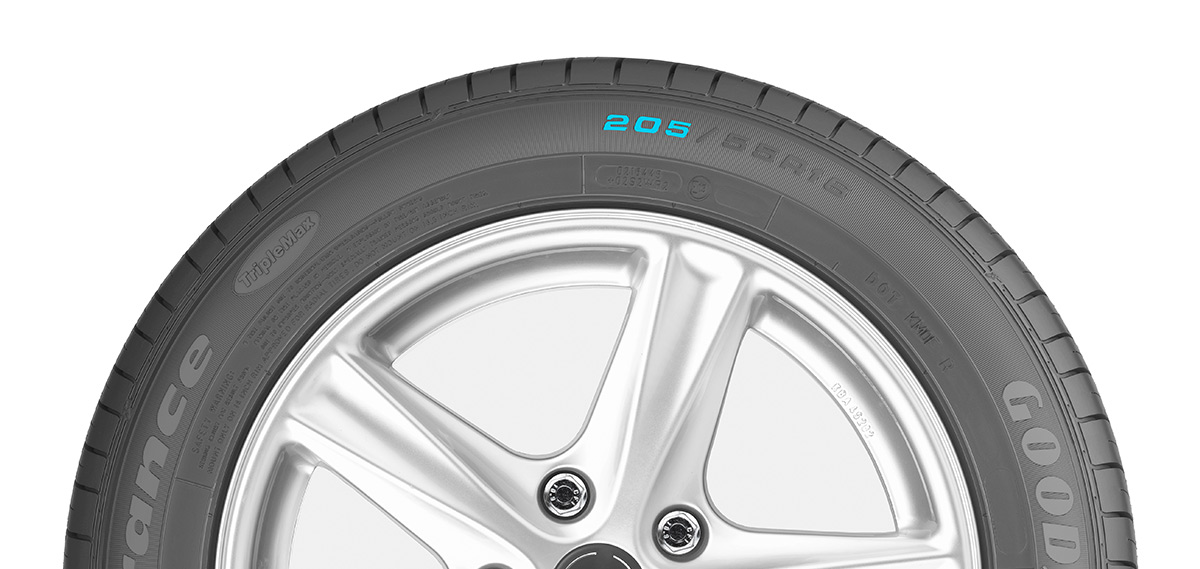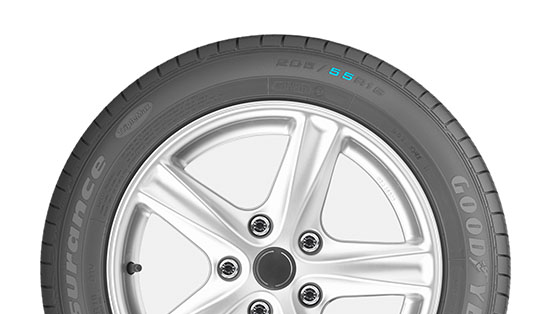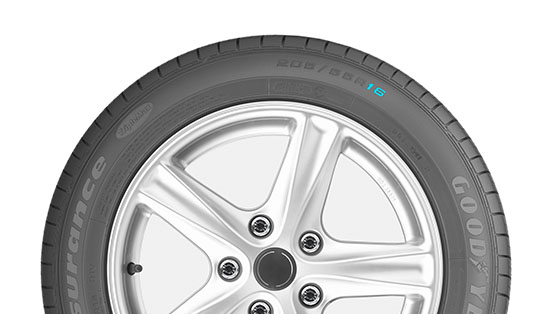How do you read your Tyre?
All the important information you need to know about your tyre is printed on the sidewall. Being able to read this information will help you maintain your tyres, and choose new ones when the time comes. Our guide will help you understand all the different numbers and letters and tell you what they mean.

Tyre Type
A “P” or no letter at all indicates a passenger car tyre.
Construction
The “R” indicates a radial tyre.
ECE Approval Mark and Number
This indicates that the tyre conforms to the standards of the United Nations Economic Commission for Europe (U.N.E.C.E.) in relation to pneumatic tyres.
Tyre Pressure Information
This is the maximum inflation pressure for your tyre, which is important to know when checking tyre pressure. You should consult your vehicle’s manual and tyre placard for more information on recommended inflation pressure.
Tread Wear Indicators
The letters “TWI” show the location of the tyre’s tread wear indicators. You should check these indicators regularly to ensure the tread is sufficiently deep. The minimum tread depth is in most cases 1.6mm.
Production Date
The date your tyre was produced is indicated by a four-digit code showing the week and the year.

Aspect Ratio
This is the ratio of the tyre’s cross-section to its width, expressed as a percentage. An aspect ratio of 65, for example, means that the tyre’s height is approximately 65% of its width.

Wheel Diameter
The diameter (height) of the wheels in inches.
Load Index
Your tyre’s load index tells you its maximum carrying capacity. It’s important to choose a replacement tyre that fits with your vehicle manufacturer’s recommendations. You’ll find the load index of your current tyre on the sidewall, just beside the diameter. Alternatively, you can use the tyre placard as the guide when replacing the tyres on your vehicle and make sure the load index is equal to or greater than the minimum requirement.
Speed Rating
The speed rating indicates the maximum legal speed for a tyre when it is correctly inflated and in use under load. You will find your tyres’ speed rating printed on the sidewall and represented by a letter. A tyre with a speed rating of V, for example, has a maximum speed of 240km/h.
When buying replacement tyres, it is essential to match their speed rating in line with the tyre placard and / or your State regulations.
